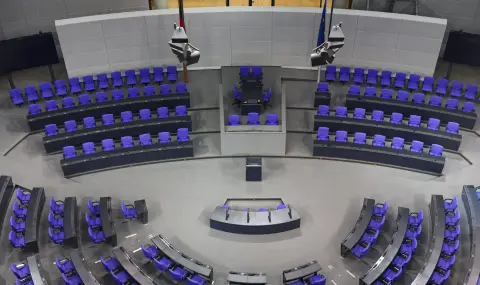A possible formation of a so-called grand coalition after the early elections in Germany on February 23 could have severe consequences for Europe's largest economy. This was warned by the head of an influential group of German economists, quoted by DPA and BTA.
The German center-right bloc of the Christian Democratic Union/Christian Social Union (CDU/CSU) and Chancellor Olaf Scholz's German Social Democratic Party (SPD) come from different worlds that will have difficulty finding common ground, said Monika Schnitzer, chairwoman of the German Council of Economic Experts, which advises the government.
"There is a risk of blocking reforms and further loss of welfare," she told the "Funke" media group today.
The new government's main task is to reduce uncertainty, Schnitzer stressed, noting that it will have to reform the so-called debt brake, which places strict limits on government borrowing.
Even minor reforms could provide a lot of room for maneuver, according to the economist.
"What is very important in a reform of the "The debt brake is to legally establish that the additional funds are spent exclusively on future-oriented investments - defense, infrastructure, education," Schnitzer said.
These funds should not be used to pay for pension schemes, she stressed.
The CDU/CSU bloc has a large lead over the German Social Democratic Party according to opinion polls, but forming a workable parliamentary majority could prove difficult, DPA notes. When these two largest political parties in Germany unite to govern the country, it is called a grand coalition, DPA recalls.
Meanwhile, German business associations described their current situation as worse than a year ago and remain pessimistic about 2025, according to a survey by the German Economic Institute (IW), which is close to employers, published today and cited by Reuters.
"The German economy will not push itself off the bottom even in 2025," said the institute's director, Michael Hütter.
The survey showed that 31 out of 49 business associations described the current situation as worse than in 2023. and 20 out of 49 industry representatives expect lower production next year, while only 16 expect growth.
High costs for electricity, labor and materials, in addition to excessive bureaucracy, are having a negative impact on companies and making it difficult for them to cope with international competition, according to the institute's study.
The uncertain global situation is hindering exports, while political chaos on the domestic scene is also holding back investment, the report says.
The negative attitudes threaten to have an impact on the labor market in particular: half of the associations surveyed predict job cuts in their respective sectors next year, while only seven associations expect employment to increase.
The German Economic Institute predicts that there will probably be fewer jobs in industry, for example in the iron and steel, mechanical engineering and construction sectors.
